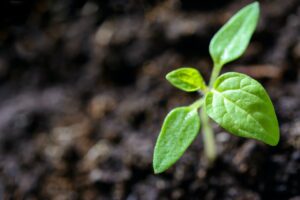
Photo PhotoMIX Company/Pexels.
Africa is home to a rich tapestry of cultures, landscapes, and biodiversity, and at the heart of this diversity lies the potential for a sustainable and prosperous future.
At the Africa Food Systems Forum 2023 Summit in Dar es Salaam, Tanzania, Professor Lise Korsten, co-director of the DSI-NRF Centre of Excellence in Food Security (CoE-FS), delivered an address on the theme of “Promoting indigenous crops for increased soil health, human health, and climate change resiliency”.
In her address, Professor Korsten emphasised the pivotal role of soil microbes in transforming the agricultural landscape, and the significance of harnessing the natural potential within African soil.
“Soil is beaming with microbes, and they are our secret weapon.
“They can contribute to food production, food security, human health, and well-being”.
Microbes, according to the CoE-FS co-director who is a plant pathologist by training, hold the potential to be the fertilisers of the future. Harnessing these natural allies can reduce the need for chemical fertilisers, making agriculture more sustainable and environmentally friendly.
The young, the traditional
Another of Africa’s greatest assets is its youth, and Professor Korsten highlighted this by stating that “Africa is beaming with excellent young talent; brilliant young scientists in different research centres”.
“If we invest in them, they can provide the solution for food security and food for all”.
The development of young minds in the agricultural sciences is vital for innovation and sustainable practices, said the CoE-FS Food Safety principal investigator.
She also hoped that Africa would embrace the dream of “indigenous food for all”, which goes hand-in-hand with promoting the cultivation and consumption of native crops that are better suited to African climates and environments, reducing reliance on a few major crops and, additionally, increasing resilience.
“We need to be more resilient and we need to move away from our dependence on a few major crops,” she said.
Professor Korsten, who is president of the African Academy of Sciences, pointed to recent research findings, indicating that communities who migrated from rural to urban areas often changed their diets from primarily indigenous crops, to more processed food and had a change in their gut microbiome, as a result.
“Scientists could then show a direct link with the increase in non-communicable diseases.”
This finding underscored the importance of preserving and promoting traditional diets rich in indigenous crops.
African awakening needed
A question posed to Professor Korsten, by Dr Innocensia John, an economist at the University of Dar es Salaam, was, “What should we do in terms of promoting indigenous crops in Africa?”. To this, the CoE-FS co-director said that “we need to unlock knowledge”.
“The knowledge is there; we need to find it and explore it. What we haven’t considered is the relationship between microbes and these indigenous crops,” she said.
Another intervenor, Dr Tony Milanzi, from the Alliance for African Partnership at Michigan State University highlighted the policy aspect, asking, “Where do you see the policy gaps? What should we be telling our governments and our regional economic communities?”.
“There’s a total gap,” said Professor Korsten. “There’s just no policy. In fact, we don’t even have a policy for food safety.”
“There’s an African awakening that needs to happen … It’s not only about policy and governance; it’s also about regulation and the people.”
related Articles
Dr Degracious Kgoale’s mission to improve food safety in informal markets
Dr Degracious Kgoale is the first in her family to hold a doctorate. Photo EYEscape/CoE-FS. Degracious Moloko Kgoale, who recently…
Three CoE-FS nominations for this year’s ‘Science Oscars of South Africa’
Some of the CoE-FS’s staff, researchers and Steering Committee. Photo Ross Jansen/CoE-FS. The DSTI-NRF Centre of Excellence in Food Security…



